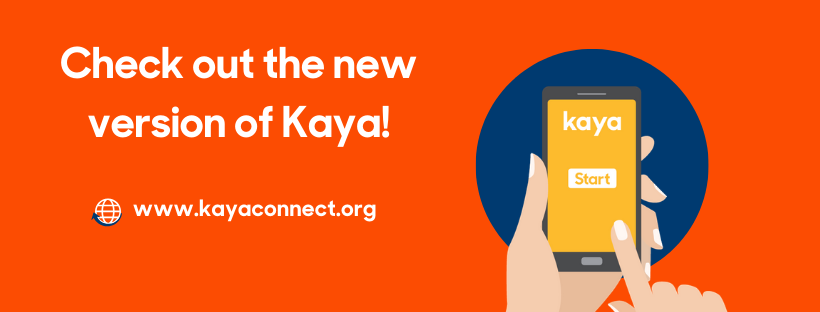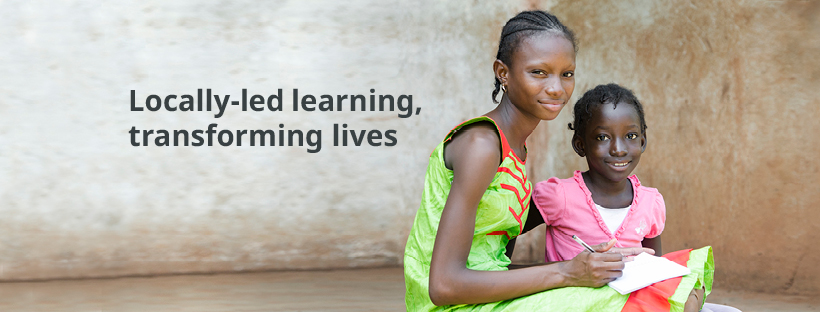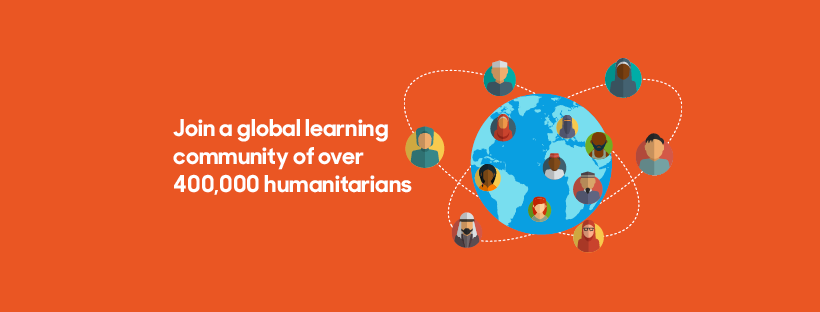Learning Without Borders, Breaking Barriers for Humanitarians!

In this exclusive HQ interview, we report on the Humanitarian Leadership Academy (HLA) and its digital learning platform Kaya. As Nwabundo Okoh, HLA's Communications and Marketing Specialist, takes us on a journey into their mission, we explore their diverse learning resources for humanitarians around the world and their strategic vision for the future, including face-to-face and hybrid events.
Can you provide an overview of the HLA and its mission to upskill people in the humanitarian sector?
The HLA is a global entity that provides high-quality humanitarian capacity strengthening for the wider humanitarian and development sectors as part of our “shifting the power” agenda. Our mission is to enable people worldwide to prepare for and respond to crises in their own countries by providing quality learning opportunities. We do this by providing needs-based support directly to those who need it. Through our full suite of services, we provide face-to-face training, blended learning opportunities and on-demand digital learning through our platform Kaya, which is underpinned by research and our contextual expertise.
How was Kaya born? How does your online learning platform cater to its users’ diverse learning needs and skill levels?
Kaya was born out of the need to strengthen the skills of humanitarians globally to directly respond to crises in their localities. The idea was to create an easily accessible platform with content relevant to different contexts and created with or by partners in the humanitarian space. Where face-to-face training may not be possible, access to the internet on a phone, tablet or laptop would allow humanitarians to get a hold of much-needed skills. Kaya, our digital learning platform, was launched in May 2016 at the World Humanitarian Summit in Istanbul. The same year as the Grand Bargain – a unique agreement between donors and humanitarian organisations committed to getting more means into the hands of people in need and improving the effectiveness and efficiency of humanitarian action.

Over 500 learning resources are now available on Kaya in 12 languages at varying levels of expertise. Courses for people who have never been involved in humanitarian action to courses for people who have worked in the sector for many years. Courses are also updated with new information as new processes are introduced to humanitarian action. Resources range from games, quizzes and assessments to online self-directed courses and pathways, webinars, videos, MOOCs (Massive Open Online Courses), and blended courses. Kaya users can also find registration for face-to-face workshops and events and so much more available and accessible at the learner’s time/flexibility. Kaya learners are able to earn and showcase the certificates received from completing courses. Some courses award HPass digital badges, our accreditation platform, which learners can add to their LinkedIn profiles. Our certificates and badges help to encourage and motivate humanitarians to accelerate their learning and professional development.
What are the main challenges the HLA faces in providing online learning opportunities to a diverse range of learners, including humanitarians, staff from other organisations seeking humanitarian learning, and refugees, to name a few?
Our challenge is to provide learning resources that are fit for purpose, relevant, contextualised and free of charge so they reach those who need them the most. The HLA also provides face-to-face training and blended learning covering Asia, East and Southern Africa, Eastern Europe, the Middle East and North Africa, West and Central Africa and more recently Latin America and the Caribbean. Some of these areas are hard to reach, where travel even for local responders can be challenging due to difficult terrains or insecurity. In addition, there have been challenges in accessing a good Internet connection, as well as language barriers, in which case, although translation services are contracted, there is an opportunity to build resources directly in local languages.

What strategies or tools does your organisation use to ensure accessibility to its e-learning offerings for diverse learners, including those with limited technology or internet connectivity?
We work with our learners and training participants to understand how to make their learning journey as smooth as possible, from offering internet bundles for access to online learning to delivering training as close to the frontline as possible. Gender considerations as well as Diversity, Equity & Inclusion are at the core of everything that we do. The HLA also works with Catalyst-IT and Totara to ensure smooth access to Kaya, which is created with an awardwinning open-source learning management system that has several innovative customisations to optimise it for humanitarian workers globally, including an offline player, that enables users to download and complete learning in areas of poor connectivity and access to learning.
Kaya has also been recently updated with accessibility features, which include a screen reader helper, a dyslexia-friendly view and much more. We are always looking to improve accessibility on Kaya and we actively promote accessibility with our partners, enhancing the platform to ensure that it meets the needs of our partners and learners. We are currently planning the Kaya roadmap for the next 12 months. We are always mindful that Kaya has to remain accessible within areas of low or limited bandwidth, so this is a primary consideration when identifying and selecting which technologies we release on the platform.

Looking ahead, what are the HLA’s principal opportunities and future goals in its mission to strengthen people’s skills?
The HLA is a leader in helping to upskill humanitarians around the world. Over 1.2 million humanitarians engage on our social media platforms, and we train thousands of humanitarians in person and across the globe every year, in some of the hardest-to-reach areas. HLA’s next step is to bring humanitarians across varying global ecosystems together as the future of humanitarianism unfolds. One of the ways we are doing this is through the Humanitarian Xchange, a hybrid event taking place on February 20, 2024. The objective is to address the systemic changes that are required to transform the root causes of human suffering, and this requires a different approach with more radical thinking. The event will showcase best practices, shape better outcomes and engage in new conversations.
With the growing trend of hybrid events, how does the HLA envision blending on-site and virtual training opportunities to cater to the needs of humanitarians worldwide?
HLA already provides (and has done so for well over a decade) blended-learning opportunities for humanitarians around the world, from operational to technical training opportunities. We also partner with universities for learning excellence and accessibility. We thrive to innovate in how we build our training using technology that promotes interactivity without excluding learners who may be struggling with access issues. Our goal is to be truly hybrid, so as not to penalise our virtual learners and provide them with a rich learning experience. We use AI, gamification and micro-learning to cater to the needs of humanitarians worldwide.
For more information, please visit kayaconnect.org






